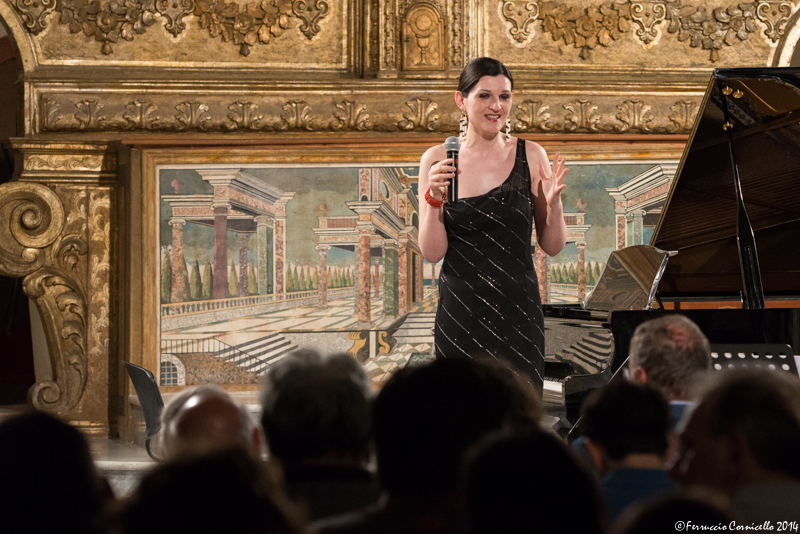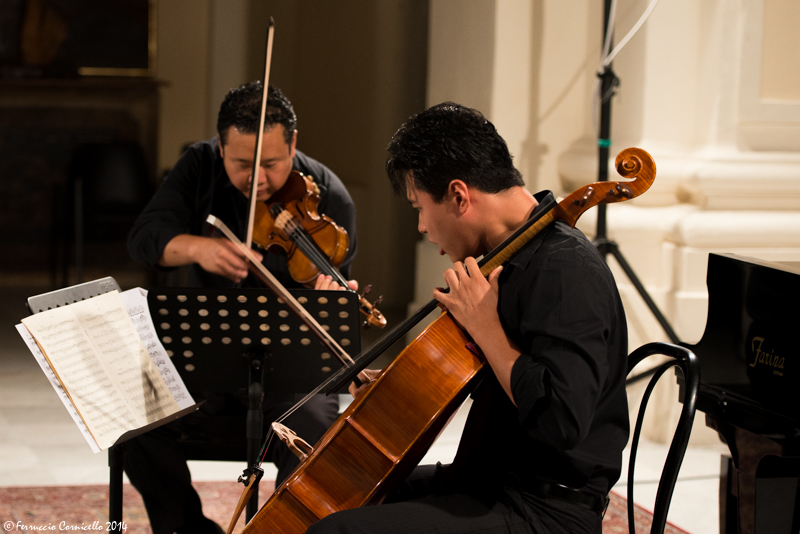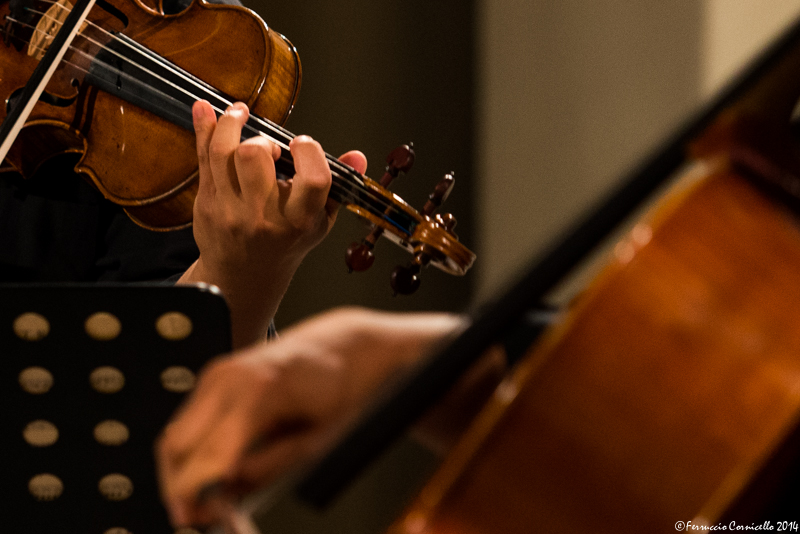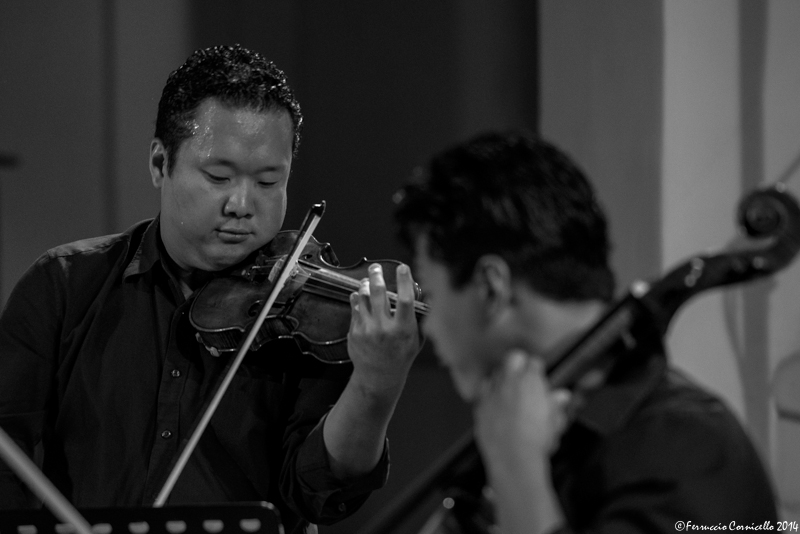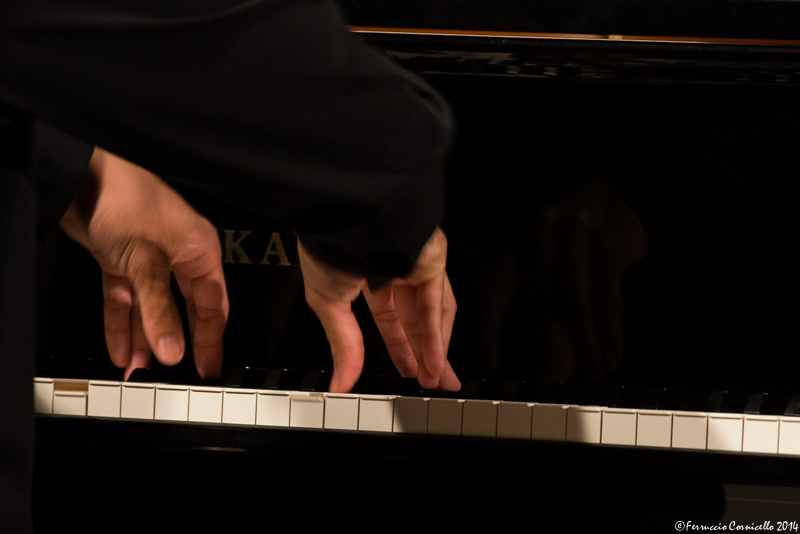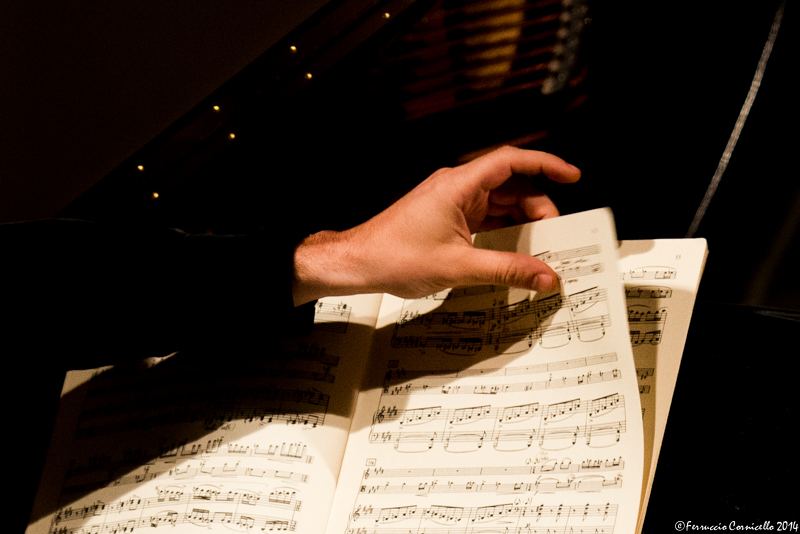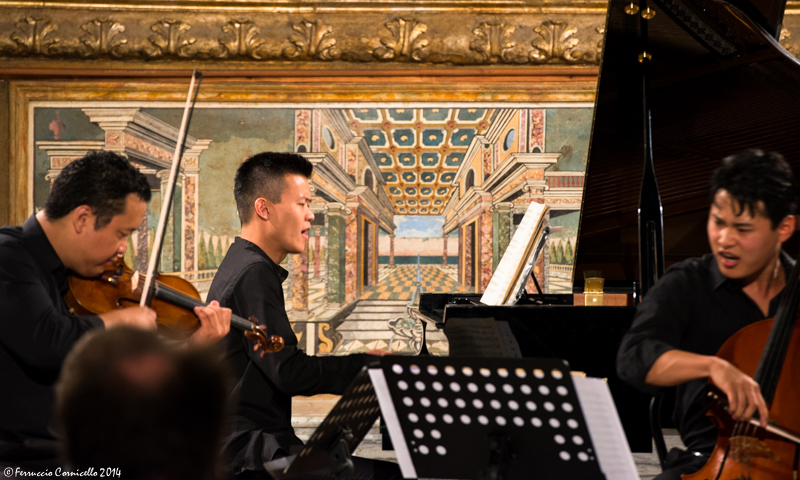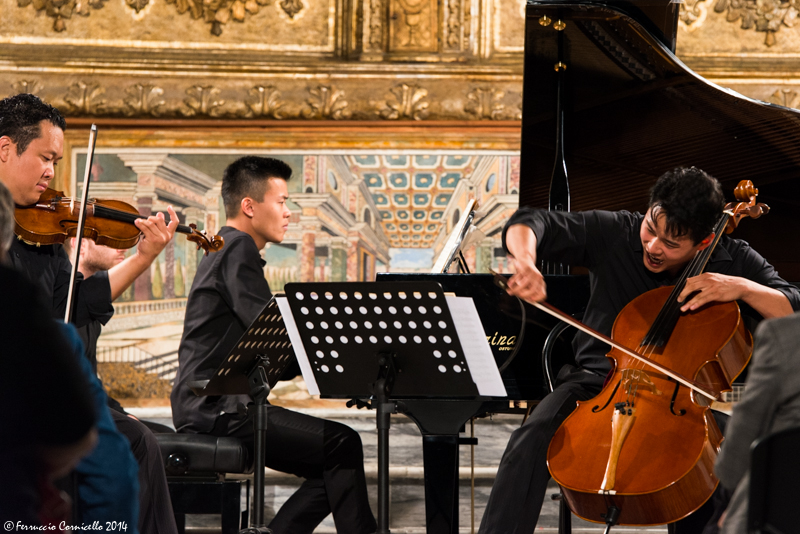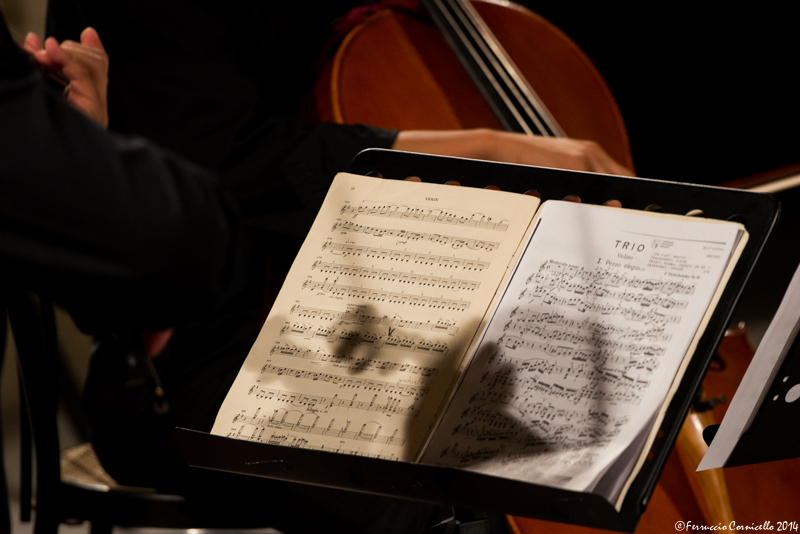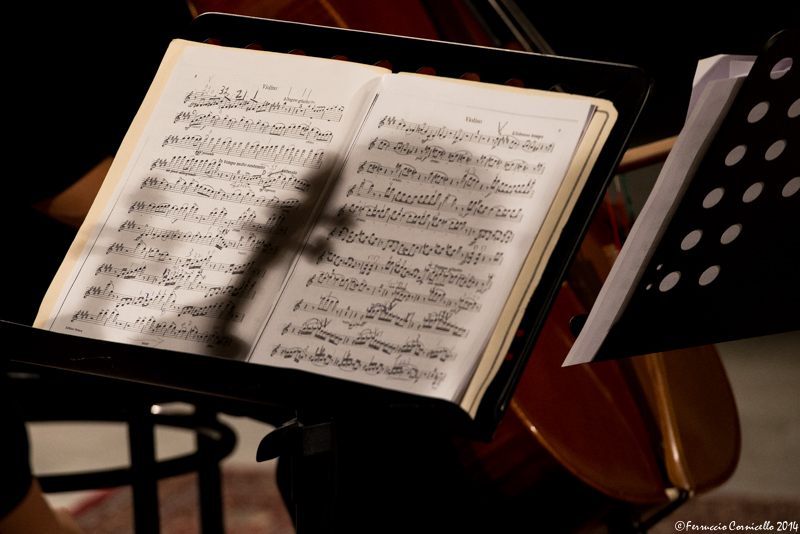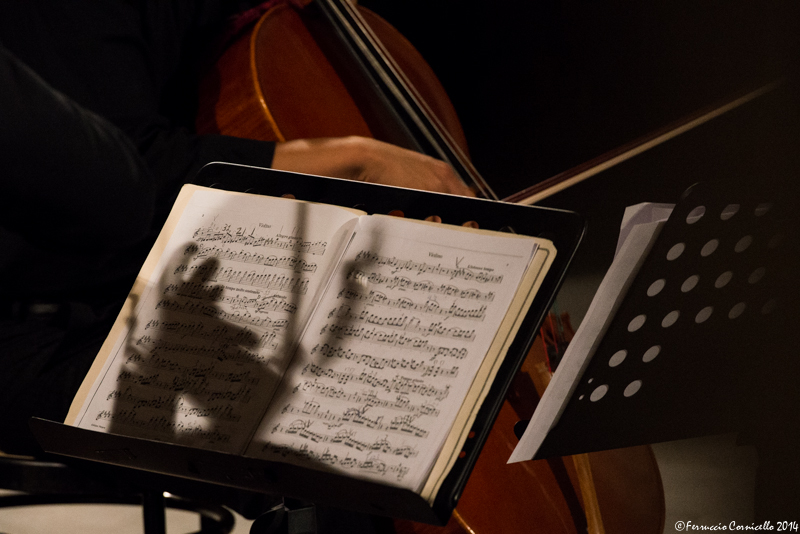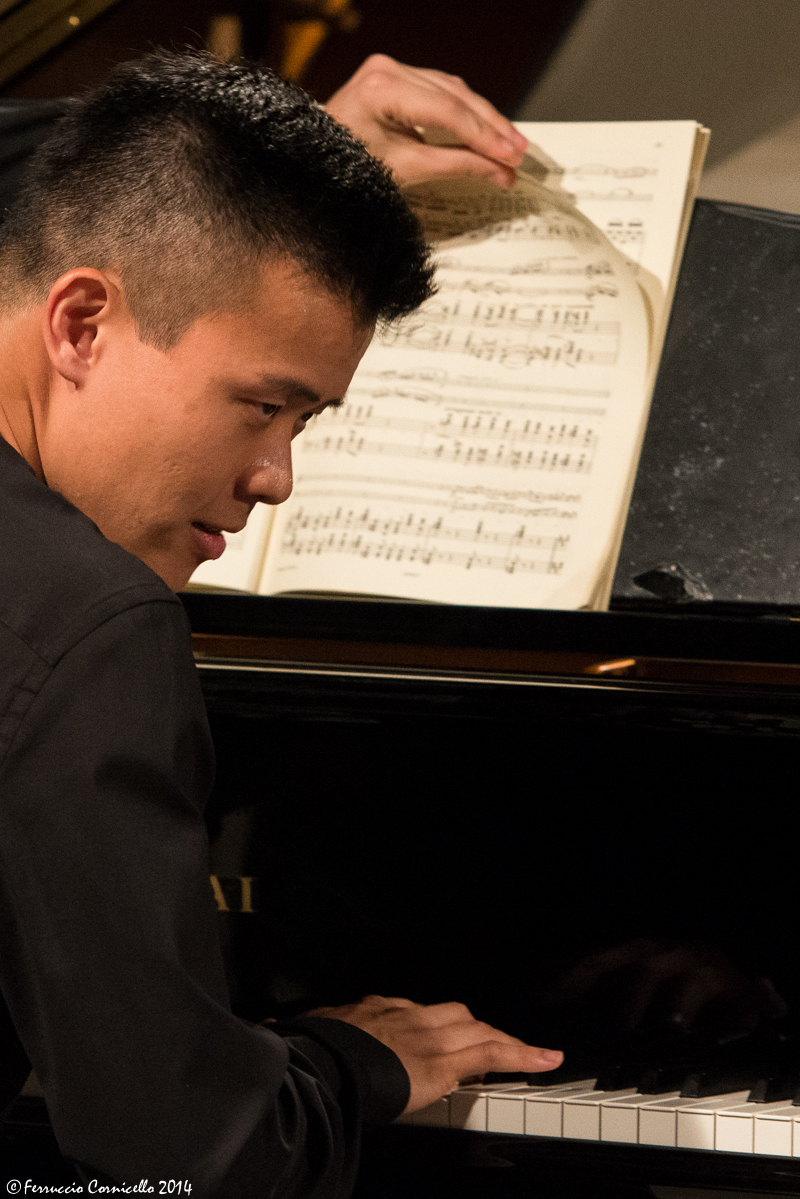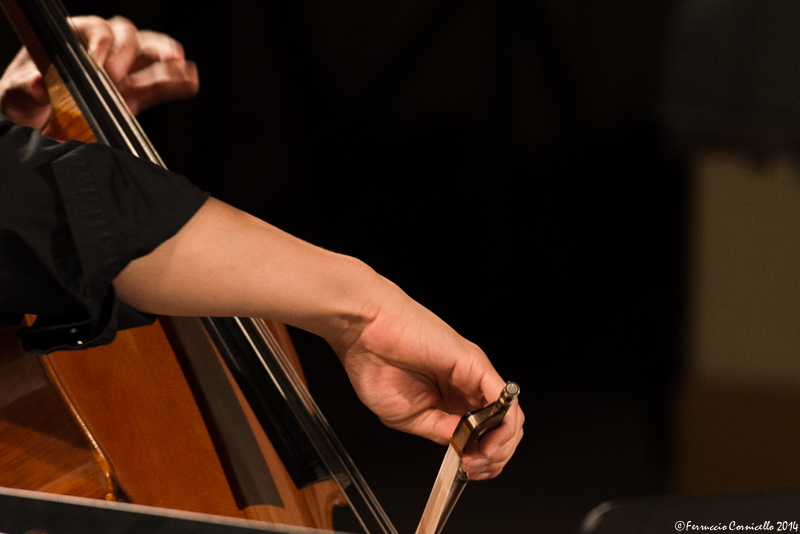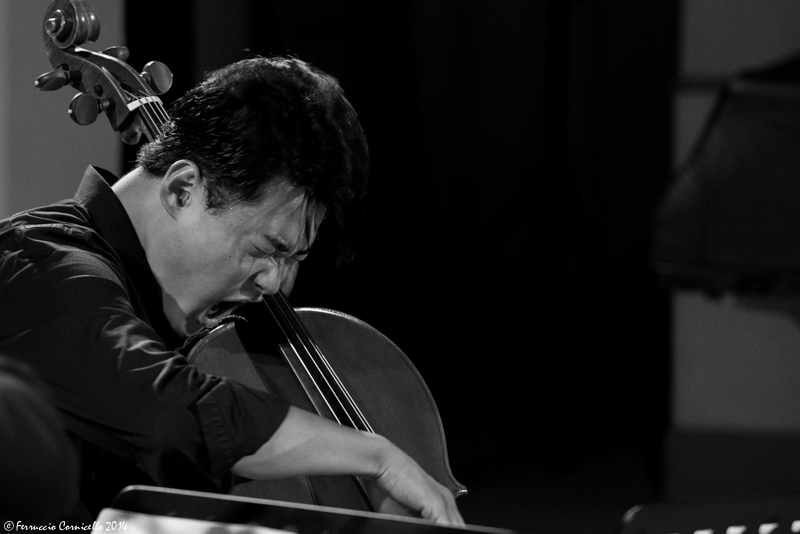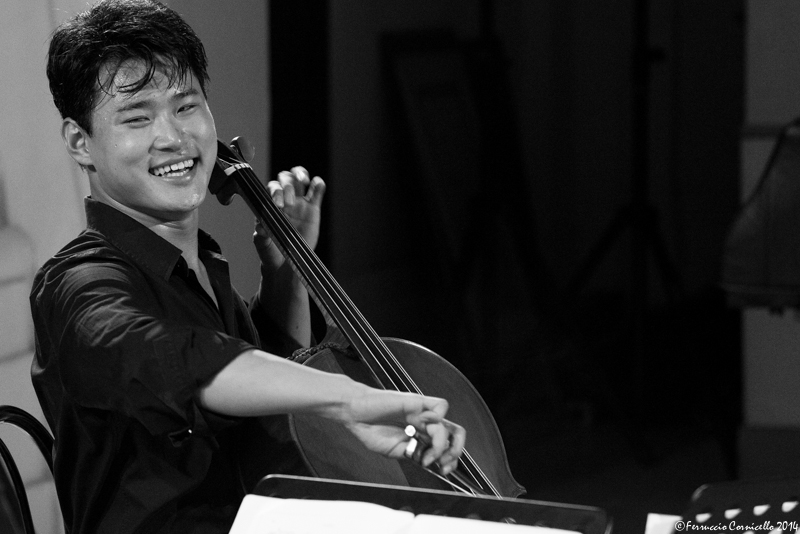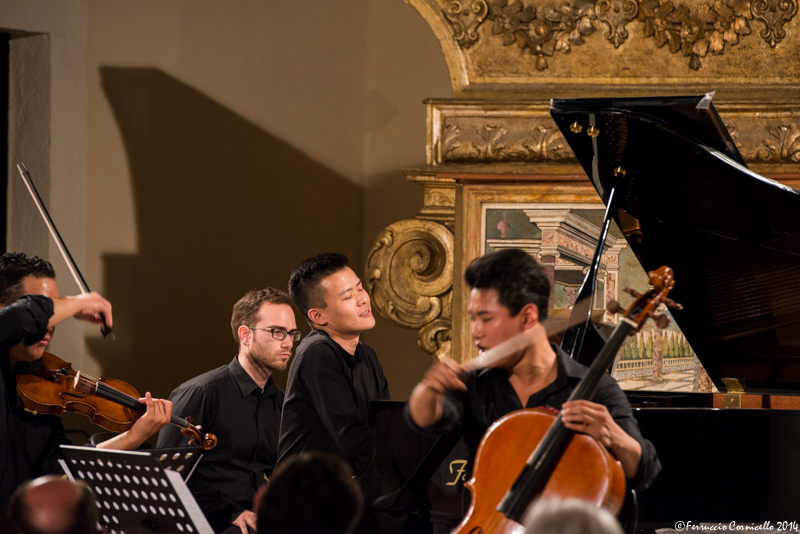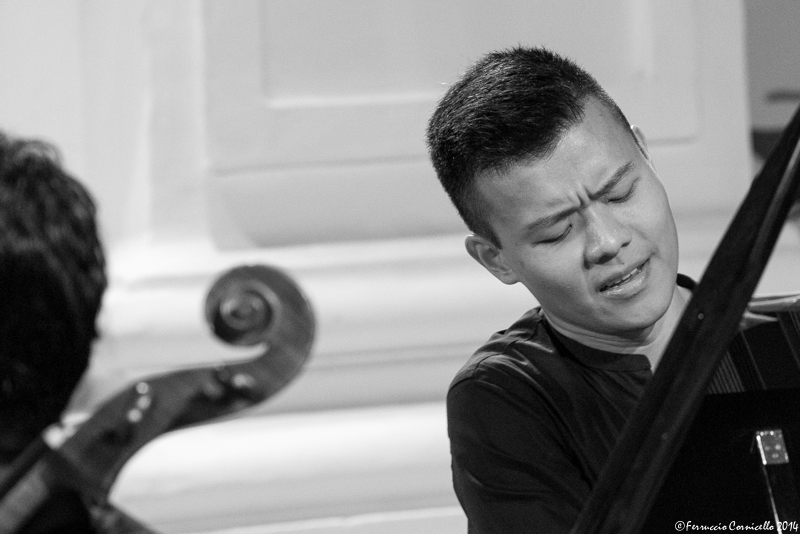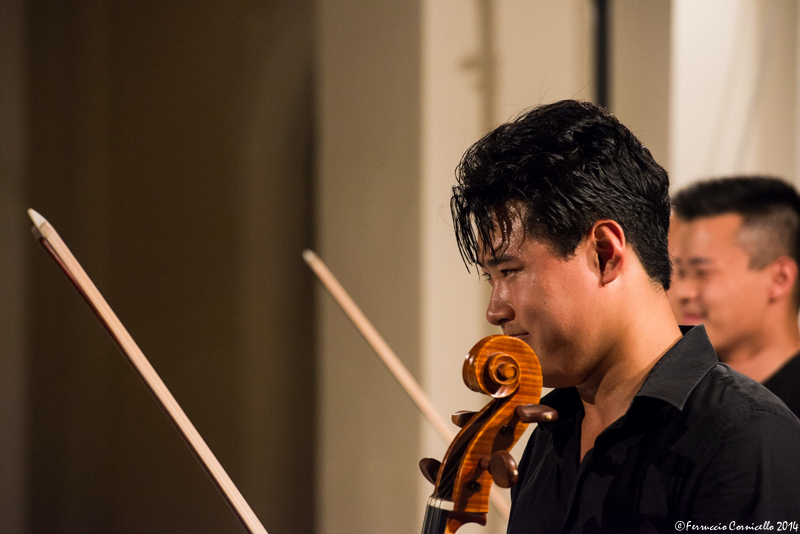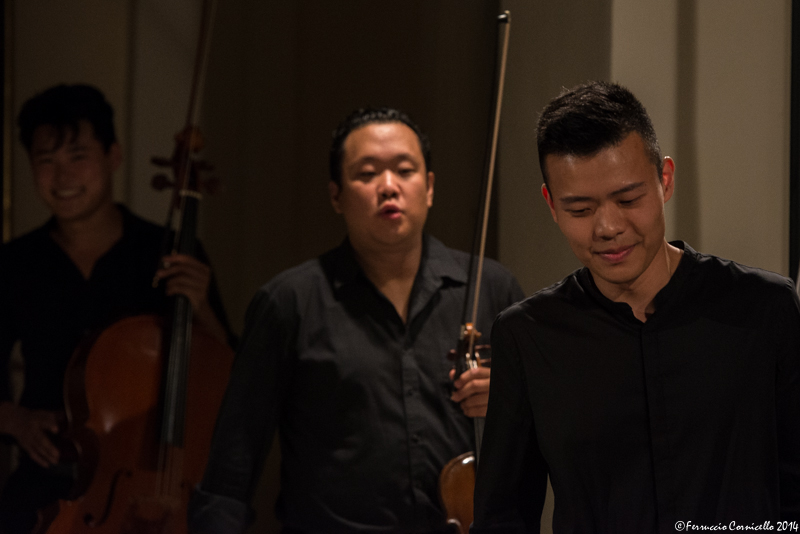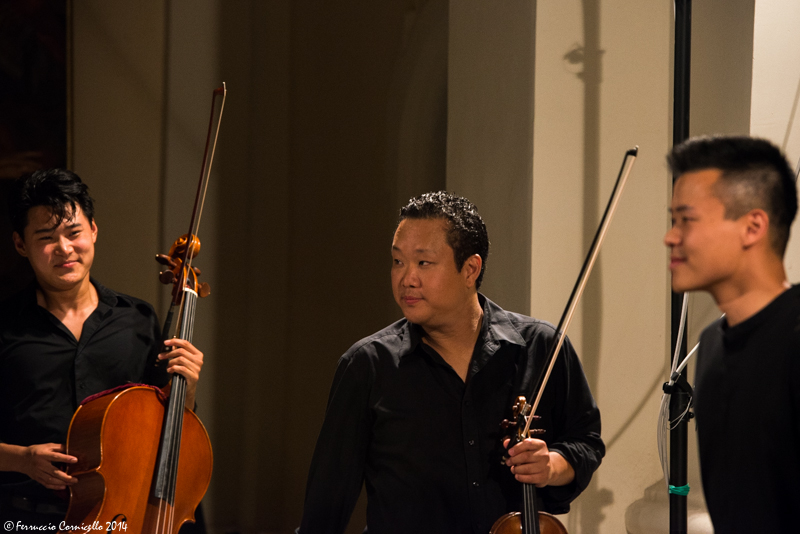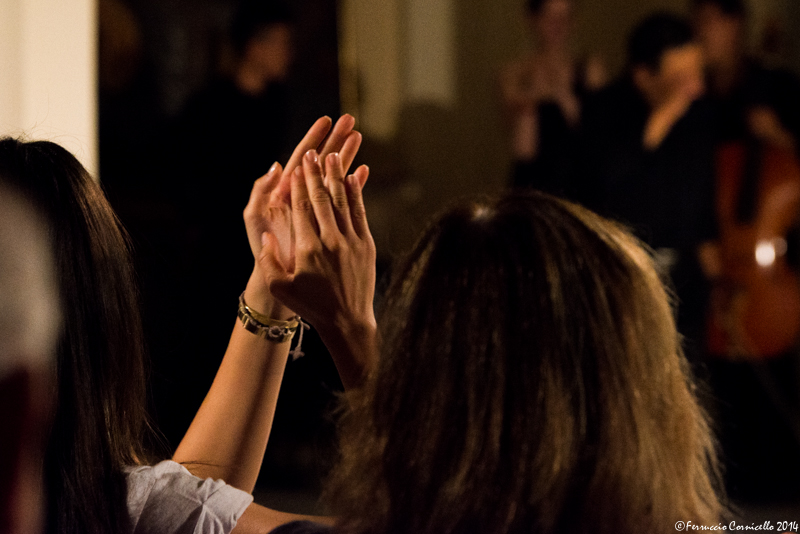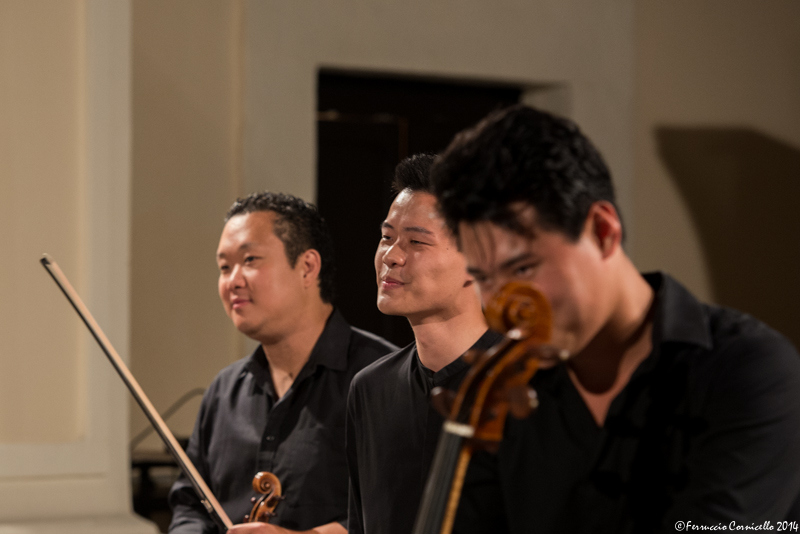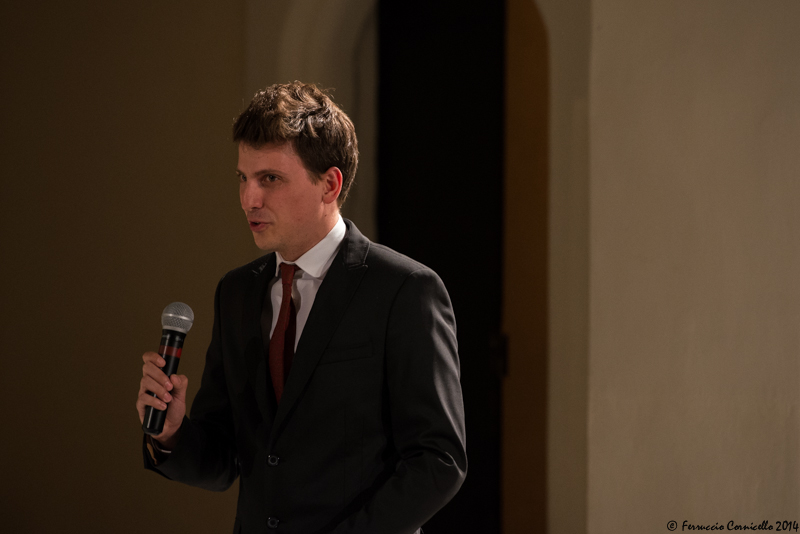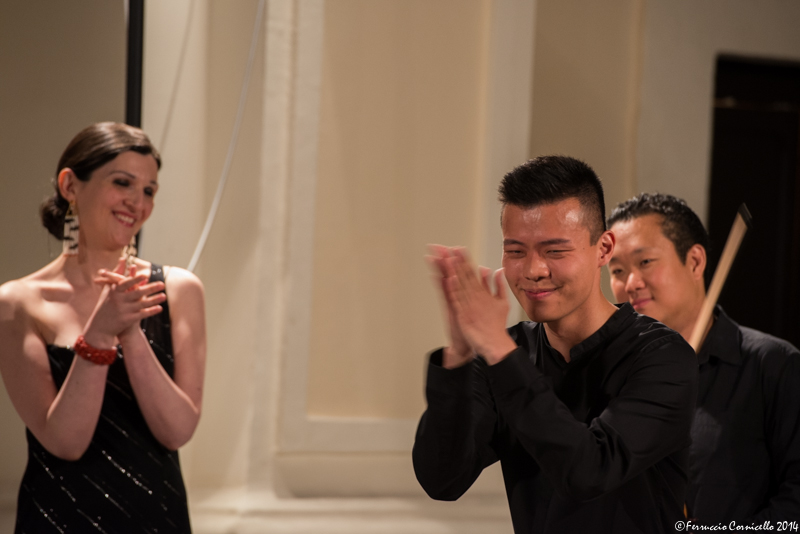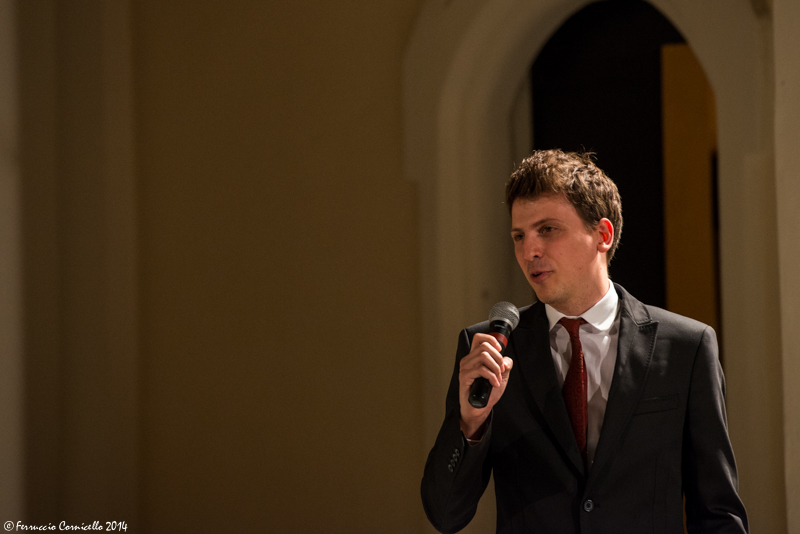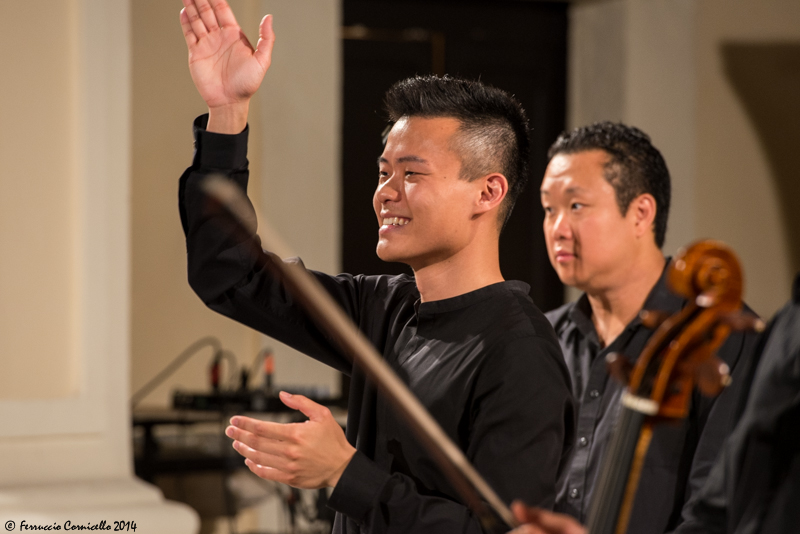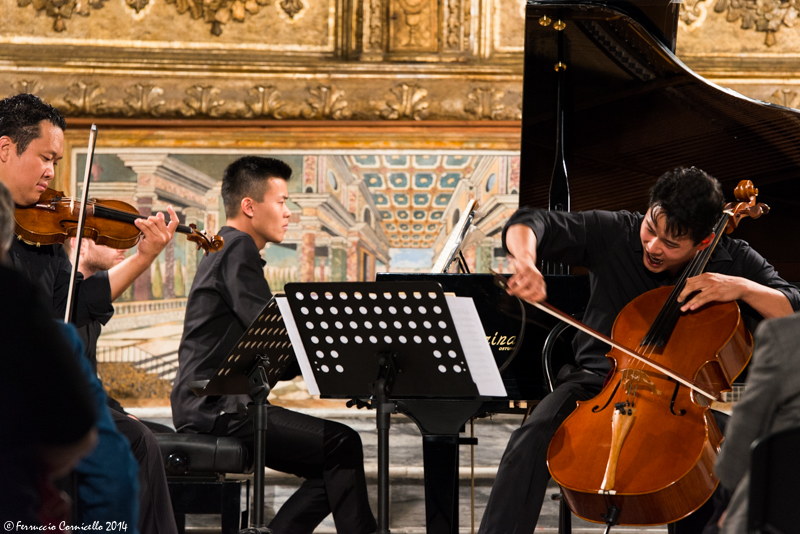
Puglia – The Dushkin Trio (David Fung, piano; Dennis Kim, violin, Jonah Kim, cello) at BIMF – Bari International Music Festival, church of S. Teresa dei Maschi, Bari – Ph. © Ferruccio Cornicello | Photogallery below

by Enzo Garofalo
For two weeks they have been among the pillars of BIMF-Bari International Music Festival, but on Saturday evening, during the closing concert, the large audience of the baroque church of Santa Teresa dei Maschi could see them in a different formation. I am referring to the Dushkin Trio, an ensemble dedicated to the composer and violinist Samuel Dushkin, an American of Polish origin, and formed by pianist David Fung (artistic director of the festival), violinist Dennis Kim, and cellist Jonah Kim. Throughout the Festival, and performing in very different repertoires, the three young musicians have proven to have an outstanding technique, and a rare interpretative sensitivity, qualities these that make them artists worthy of attention, and certainly of a more frequent presence in Italian concert halls; not to mention their joyful attitude and the fact they “make music” as a moment for sharing intense emotions, which is the most significant thing a performer should be able to convey to his audience.
The concert – as usual introduced by a very elegant Stefania Gianfrancesco – has seen them performing two musical masterpieces, although belonging to a bit more “secluded” production of their respective authors, two real giants: the Russian Dmitri Shostakovich and Piotr Ilyich Tchaikovsky.
|
|
The concert was opened by the Trio in E minor Op 67 by Shostakovich, a chamber work in which the author explores his most intimate sensitivity, distant but not entirely detached from the concerns of people like himself, used to take a position on the great tragedies of the twentieth century. A prime example of a production that has been gradually rediscovered because of the high quality of the music, and the particular spiritual depth.
Composed in the middle of the 2nd World War, whose tragedy was amplified by the grief for the sudden and premature death of Ivan Sollertinskij, who was bound to the author by a strong friendship since the time of their studies at the Conservatory. This piece is a tribute to the great friend who remained on Shostacovich’s side in difficult times as the one experienced after Stalin’s condemnation of Shostacovich’s music. The choice to devote a trio to his memory goes back to the tradition started by Tchaikovsky and Rachmaninov. The three instruments conducted their dialogue, sometimes a very tight one, passing from introspective lyricism, glowing moments of rhythmic invention, intimate atmospheres, and mournful pensiveness or sulfur sarcasm, up to the unsettling end: a grotesque dance of death with a Jewish theme that seems to transcend the death of Sollertinskij to become a general reference to the immense tragedy of the war. A perfect balance, expression of an absolutely extraordinary understanding between the three musicians, has characterized the performance, which has been a clockwork which necessarily required the highest level of technical rigor and emotional transport in order for the miracle of the music becoming poetry to exist – and in Bari it occurred.
The poetry weaving the Trio in A minor, Op 50 by Tchaikovsky is as bitter and full of complex psychological facets as Shostacovich’s. Tchaikovsky’s Trio has become a sort of paradigm for this type of instrumental ensemble, although it had never wowed the supreme Russian master. The death of his friend and master Nicholas Rubinstein, founder of the Moscow Conservatory, inspired him to compose for this ensemble, thus producing one of his greatest masterpieces. The intent to honor Rubinstein and his pianistic talent is especially evident in the complexity and virtuosity reserved to the pianistic tour de force David Fung passed with command, jauntiness and a wonderful taste. Excellent was also the performance of Dennis Kim and Jonah Kim, whose instruments have interjected with the piano to recreate the extraordinary alternation of melancholic elegy, lively popular atmospheres as those evoked by the eleven variations on a folk theme, and again elegy which leads to an austere funeral march of farewell.
An atmosphere of solemn suspension concluded the final concert of the festival, to be promptly interrupted by thunderous applauses. Before the dismissal the performers have greeted their audience with a clear change in the emotional register: the Dushkin Trio proposed a special, and much appreciated, version of the main theme of the successful American television series “Game of Thrones”.

 Fame di Sud Il sud Italia come non lo avete mai visto
Fame di Sud Il sud Italia come non lo avete mai visto


